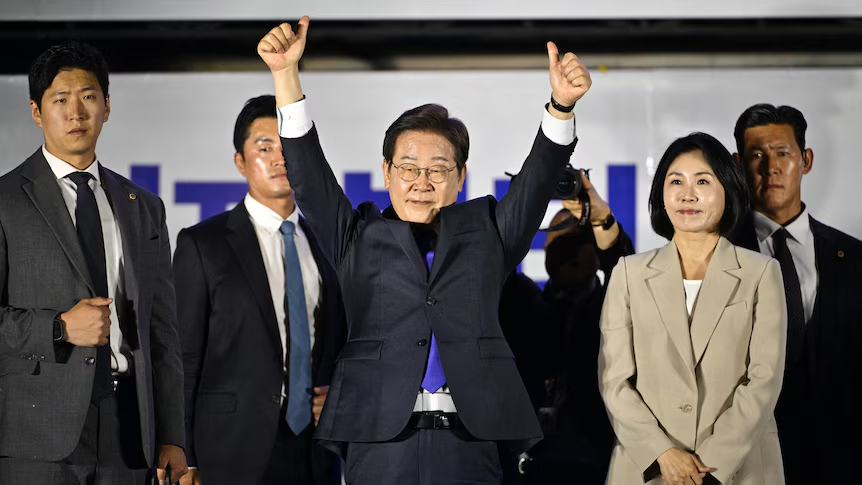

SEOUL: South Korea’s center-left leader Lee Jae-myung was officially declared president on Wednesday after a decisive win in a snap election, stepping into the top office amid deep national divisions following his predecessor’s failed attempt to impose martial law.
Lee, representing the Democratic Party, secured 49.4% of the vote, comfortably defeating conservative rival Kim Moon-soo, who garnered 41.2%. Kim’s campaign was weakened by internal party strife and the impact of a third-party candidate splitting the right-wing vote. His loss marks another blow to the former ruling party of impeached ex-president Yoon Suk Yeol.
The snap election was triggered by Yoon’s dramatic ouster from office in the wake of his controversial martial law declaration in December, an incident that rocked South Korea’s political landscape and heightened tensions nationwide. Unlike regular elections, which allow for a lengthy transition, Lee’s term began immediately after the National Election Commission (NEC) certified the results early Wednesday morning.
“The National Election Commission hereby declares Lee Jae-myung of the Democratic Party as the elected president,” announced NEC chairperson Roh Tae-ak. Kim Moon-soo conceded the race earlier in the night, acknowledging defeat as vote counts confirmed he had no realistic path to victory.
Lee enters office facing a daunting agenda. Domestically, South Korea grapples with economic stagnation, social polarization, and public distrust in institutions. Internationally, he must navigate rising global trade tensions and escalating military cooperation between nuclear-armed North Korea and Russia.
The political climate remains fragile, with the country still recovering from the shock of Yoon’s martial law attempt and the ensuing rise of far-right movements. Analysts say these developments have shaken South Korea’s democratic foundations and left deep scars.
In a speech to supporters shortly after being declared winner, Lee struck a conciliatory tone. “Even if we stood on opposite sides during the election, we are all fellow citizens of the Republic of Korea,” he said. “Let us move forward with hope and begin a new chapter together.”
He pledged to prioritize unity, rebuild trust in governance, and seek “dialogue, communication, and cooperation” with North Korea, stressing the need to pursue peaceful coexistence and shared prosperity with the North, with whom the South remains technically at war.
Lee is expected to begin his first day in office with a traditional military phone briefing, confirming the transfer of operational command. He is also likely to visit the National Cemetery, a symbolic gesture of remembrance followed by previous presidents. A modest inauguration ceremony is expected to take place at the National Assembly — the same location where Yoon controversially ordered armed troops deployed during his final days in office.
Lee’s immediate challenge will be to restore stability and trust in a nation still reeling from political crisis, as he begins his presidency without the usual grace period of a transition.